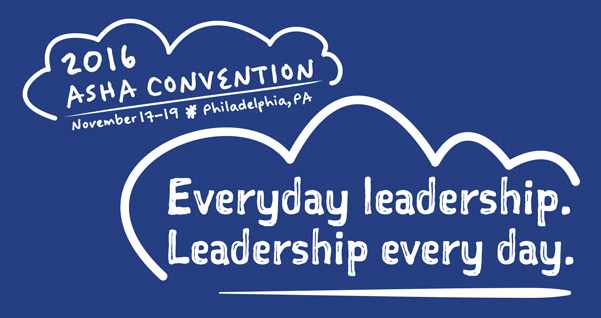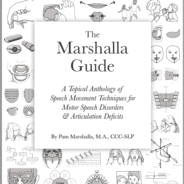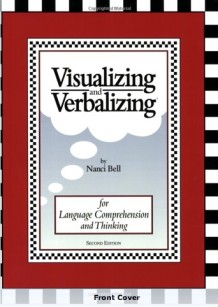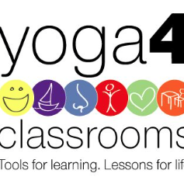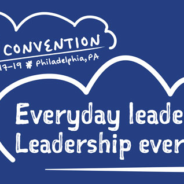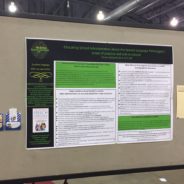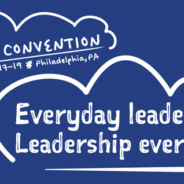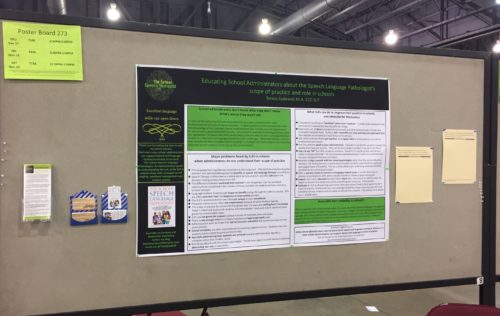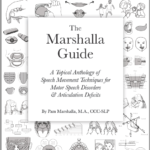Workshops/Conferences Review
The School Speech Therapist is going to ASHA. It has been 29 years but in a few days I’m finally going back to the ASHA Convention. This time not as a newbee SLP but as a seasoned professional with over 30 years of experience. I’ve also decided to blog my ASHA experience.
I’ve spent the last few days perusing the course/workshop/poster session lists, hoping to maximize my learning and my acquisition of CEUs. That process alone has been a bit overwhelming but also interesting to see what others in the field are working on. There are also a hand full of non-course activities and “meet and greets” that sound like fun. With social media being such a big part of SLP world these days, I’m also looking forward to putting some names and faces together.
The other exciting part about the ASHA Convention for me is that I am presenting a poster session. For a lot of people that wouldn’t be a big deal but for me it is. For months now I’ve been planning and prepping. Anyone who says putting together presentations isn’t work, is totally wrong. Since this is a first for me, it’s probably taken me twice as long to pull this poster session together. I sweated over the title, wondered if the content would be relevant, figured out how to create a poster in powerpoint and toiled over my three pages of handouts. The good thing is that I now know my material so well that I’m not feeling nervous about presenting. I also realize I could be doing all this work and no one even stop by to see my poster. I will explain a little more about my poster presentation in a future post. For now here are the presentation details.
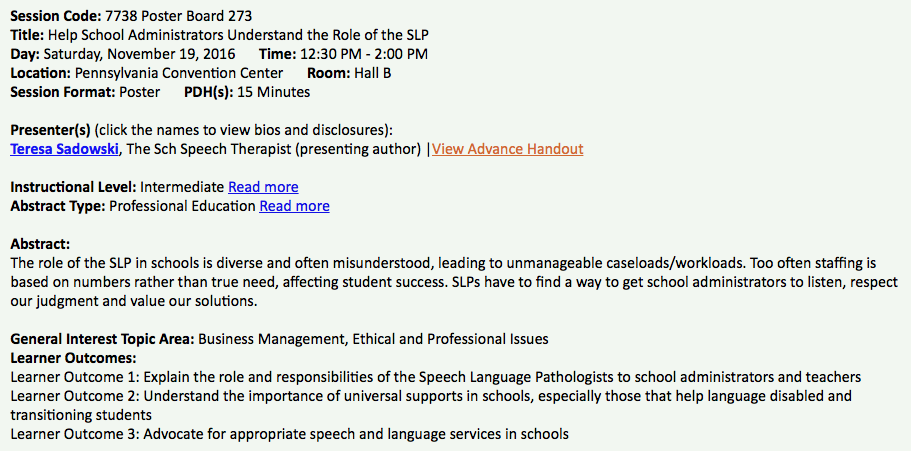
(To get the advance handout you need to go to the ASHA web site. I’ll post it live after the conference along with my rack card handout for administrators)
I’ve actually retitled my poster to Educating School Administrators about the Speech Language Pathologists Scope of Practice and role in Schools My poster session is based on my book The School Speech Language Pathologist, An Administrators Guide to understanding the role of the SLP in schools along with strategies to aid staffing, workload management and student success
Hope to see many of you there! If not follow along.
Scroll down to see newest posts
The Marshalla Guide: Book Review
I was recently asked to review a new book. The Marshalla Guide A Topical Anthology of Speech Movement Techniques for Motor Speech Disorder and Articulation Deficits By Pam Marshalla, M.A., CCC-SLP. Being fairly familiar with the quality of Pam Marshalla’s previous works and using/owning many of her books myself I jumped at the opportunity to review her new book.
The Marshalla Guide is basically Pam Marshalla’s life’s work in the areas of oral motor and articulation. Passing on Pam’s knowledge, research and remediation strategies in a structured and well organized manner, the Marshalla Guide covers all things articulation. While in the process of reviewing this book I’ve already used it to refresh my knowledge on lateral lisp, jaw stabilization techniques and other ideas to achieve stimulability of challenging error sounds.
The Marshalla Guide is a pretty big book, almost 500 pages, which might appear overwhelming to some. However, scanning/reading the book I noted that there was quality and valuable information on every page. Finding what you need is not a problem at all. At the beginning of the book Pam Marshalla references the history of articulation therapy and traditional therapy methods. This was a fun read for me because Pam Marshalla and I would have gone to college around the same time and it was exactly what I was taught. I always felt that knowing this underlying history and evolution of speech language pathology in general has helped me build on my skills as a clinician.
Throughout the Marshalla Guide there are therapy techniques, guides, strategies, explanations and specific activities to aid just about any oral motor or articulation situation you may encounter. For me some of this was a good review but I also noted several new strategies and theories to apply. My first impression was that this would make a fantastic college text. Not in dry sense of the term college textbook but in a more meaningful way with practical application. I wish The Marshalla Guide had been on my shelf the past 35 years. It would have increased my confidence around providing appropriate oral motor and articulation therapy in many complex situations.
Who knew there was so much to know about oral motor and articulation? Well, speech Language Pathologists do and so did Pam Marshalla. She was able to take her training and extensive knowledge and organize it in an extremely helpful and user friendly way. You won’t need any other books on articulation therapy other than the Marshalla guide. It is a book you will keep on your shelf forever. A+
***The Marshalla Guide is available at Marshalla Speech and LanguageA launch sale is going on now with 10% off until April 30, 2020. Get an additional 5% off using the promo code schoolspeech.
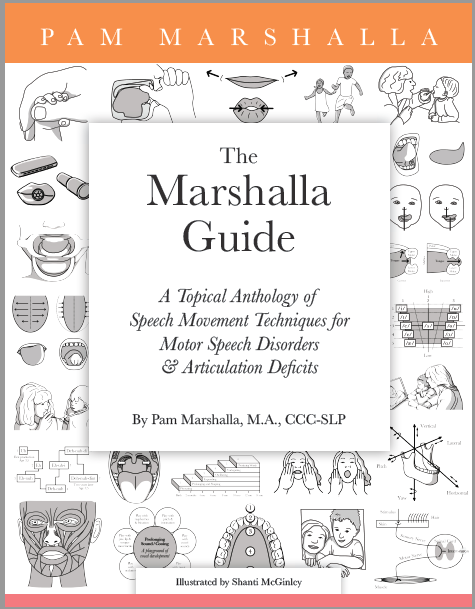
How do administrators and teachers perceive language disabilities?
It has been quite awhile since I posted anything. I apologize for that. No real excuses, except that writing a blog is a job in itself. Plus I think I have been a little disillusioned with the field. However, I haven’t been sitting around feeling sorry for my situation. After 30+ years in schools I’ve made a positive change. I’m still running my own small private practice and it has been going well. I take on a few private clients and a school contract here and there. It has actually worked out well and I’ve learned a lot working as a consultant in a variety of settings with a variety of teams.
The other day I needed another half credit hour to renew my license. I found a one-credit course through Northern Speech Services called Perceptions of Children in Speech Therapy-What the SLP needs to know, presented by Rhonda Wojcicki, MS. CCC-SLP. Initially from the title, I thought it was going to be about the perceptions of the students who have to attend therapy but it was even better. It was about how administrators/teachers perceive students with speech and language disabilities. Which as you might know ties in with the information in my book The School Speech Therapist-An Administrator’s Guide to understanding the role of the SLP in Schools along with strategies to aid staffing, workload management and student success
After this short well researched on line course I got to thinking. I’ve always known that most administrators have no idea about students and their disabilities. I’ve also know that most administrators have no clue about the Speech Language Pathologist role in evaluating and treating students with language disabilities, along with all the duties that come with that. My book published 2015 was written and published specifically for administrators regarding the role of the Speech Language Pathologist in schools. My book on touches on the types of students we service and their disabilities but it was more about what SLPs do in schools. This course made me realize that we might have to take things a step back, focusing more on educating administrators/teachers around language disabilities before focusing on what the SLP needs to manage their workload.
It was wonderful to listen to a course that basically drew the same conclusion I have over the years, that most administrators and teachers have little understanding how language disabilities (and disabilities in general) impact learning and life. My own observations tell me they also have difficulty understanding how proper support and therapy can help students with disabilities. If this was understood SLPs would not have such high caseloads, specific time would be built in for therapy, co-teaching models would be better, younger students would receive therapy more often, higher order language disabilities would be a priority and the list could go on and on.
Basically if administrators/teachers had a better understanding of language disabilities, child development and success with appropriate interventions, SLPs would not be spread so thin in schools. Our contributions in meetings would hold more weight, students would receive therapy more often and we would be consulted on a regular basis.
Several years back when Response to Intervention (RTI) was becoming a thing, I worked in a school that tried to raise the level of understanding of language disabilities with teachers. This was actually a good thing but it wasn’t done well and we had difficulty getting teacher buy in. There were some a-ha moments for the teachers I worked with at the middle school level but they were few and far between. Needless to say principals and administrators were not part of this training.
Lack of understanding of speech and language disabilities is nothing new but in the past our knowledge and role was more respected. Over the years the role of the SLP in schools has become more technical but we forgot to tell people that. When I first started working my caseload primarily consisted of students working on grammar and articulation, with a much smaller overall workload. Now a public school caseload will consist of students with mild to severe language needs covering the whole spectrum of language/learning disabilities. Students use to be sent out for more in depth testing to hospitals or clinics. Now we do it all. I remember that the hospital/clinic testing always held more weight in meetings even if the SLP was the only one at the table who really understood the findings. It was a good bargaining chip for students to receive increased speech and language services.
Now we do the same testing and yet often the team does not validate our findings. In some cases we are not even allowed to spend the needed time to present our findings and explain things to the parents. When we do get a chance to explain speech and language findings, rarely is anyone taking a note, commenting or asking a question. I often wonder if any of the accommodations or goals are read, much less followed or addressed in the classroom. In years past, SLPs could at least count on the special education teacher or school psychologist having some understanding of language disabilities but that has seemed to wane.
Why do administrators, teachers and other team members have such a poor understanding of why/how underlying language disabilities impact learning? Even if it wasn’t part of their initial training, wouldn’t years of sitting in IEP meetings, teaching children at all levels and talking with the SLP increase their levels of understanding to the point where they could say “I think that student has some sort of underlying language disability”. For a lot of teachers and administrators it hasn’t. I have several thoughts on why this has happened.
- Teachers have a lot on their plate with little support
- You can’t easily “see” language disabilities
- Teacher training even in this day and age, years after integration was the norm, still does not prepare teachers for the disabilities they may encounter in their classrooms
- Many years ago administrators were told they had to immediately integrate special education students with little understanding of disabilities, little to no training and no viable plan. Many Administrators still see integration as a blanket policy without considering individual needs or teacher’s ability to do this successfully.
- If a teacher suspects a disability they basically have to jump through hoops, take copious data and try several accommodations (often without guidance) before referring a student through the RTI process. Once in the RTI process it is often a lot of work for the teachers. Not to mention precious time where the student could be receiving more appropriate services is lost and the child continues to fail. I have known teachers to avoid the RTI process by telling parents to directly request an evaluation. This was evident at one particular school when several evaluation requests came across my desk after the first parent-teacher conference several years in a row.
- In the past administrators have often come up through the ranks and would have a lot of experience actually working with students. Today a lot of administrators go right into administration without any experience working with regular or special education students.
- Administrators running special education programs either as the head of the department or as team managers are not always required to have any special education experience. My observation is that team meetings are run very differently depending on the level of special education experience/understanding of the team leader.
- Schools offer very few continuing education opportunities having anything to do with language development. They have experts in the schools so why don’t they use them.
- Special and regular education teachers are expected to focus on curriculum standards and passing that all-important standardized test. They have little to no understanding of the gaps that language/learning disabled students have. A very good example of this is when it comes to writing (again which is important to pass that standardized test). If a language disabled student is unable to organize language, generate grammatically decent sentences and use a rich vocabulary, what makes them think they will be able to do it in writing. There is clearly a gap or disconnection, which others at the IEP table often won’t acknowledge. Their training tells them a template will solve all the problems, SLPs know it won’t.
- Lack of time to do things properly is a huge issue for everyone in schools. Since there is a general lack of understanding of disabilities especially with administrators, there is usually never enough time built into the schedule to do what has to be done. Almost every IEP has a consult piece, yet time is not built in to meet with teachers and most consulting is done when passing through the hallway.
- Schools do not use enough Universal Supports to aid learning for all.
- The typical 2×30/week for therapy might fit the school schedule but does it fit the child’s needs? Because of this lack of flexibility imposed by the school schedule this perhaps demonstrates that therapies in general are not perceived as important.
- Speech and language issues are often seen as medical needs not educational needs.
- Administrators don’t know what they don’t know. In over 30 years working in schools I’ve never once been asked what I need to manage the workload or what the students need to be successful. It’s my impression that teachers are rarely asked either. Given the structure and culture of most schools, school personnel are often afraid to speak up on such issues.
So what can be done at this point to raise the awareness and understanding of language disabilities and the impact on learning? I wish I had the answer. Administrators influence budgets and policies that directly impact the quality of programs and services thus impacting the success of students. For them not to understand the varied learning style of a good chunk of their students is not good. My experience is that administrators will support a new fad program with more enthusiasm than they will support direct services for language-disabled students. If the underlying cause is that they do not understand language disabilities or perceive language disabilities separate from learning, then clearly more education is required. Which was one of the basic conclusions taken from the course.
The answer seems simple, provide administrators and teachers ongoing education around awareness and understanding of language disabilities and their impact on learning. After over 30 years working in schools, I just can’t see that happening until someone with a lot more clout than the lowly single SLP working in a school starts pointing it out. Creating workshops might be a good start but still you would have to get buy in.
I enjoyed listening to Perception of Children in Speech Therapy-What the SLP needs to know. It gave me a lot to think about. I’d like to see a similar conference marketed toward administration and teachers. I will be suggesting it to the author.
Visualizing and Verbalizing goals/objectives
Several years ago I took the Visualizing and Verbalizing course. It must have been a 3 or 4-day course. I didn’t take it directly from Lindamood Bell but from a local agency that was approved by Lindamood-Bell and used Visualizing and Verbalizing in their practice. I was honestly very impressed with V and V. My initial impression was that it tapped into a lot of what I was trying to do with many of my students. Basically it presented me with a better-organized and sequential program that fit my needs at the time. At the completion of the course I wrote a reflection paper, which I feel is still relevant today.
Now ironically, the V and V kit along with LIPS (then known as ADD) kit sat on my inherited shelves for years untouched. I seem to remember seeing them collecting dust in various reading specialists offices too. I’m really sorry I didn’t jump on this bandwagon sooner. I also regret not taking the longer LIPS course when I was younger and becoming an expert in it.
I think most of the people taking the course with me were just as excited and anxious to use V and V in their practice. The big question came up. How do we write goals for this? All the controversy around goal writing was just starting to heat up and we needed something substantial. As a group we talked about wording and I’m still searching for those notes. What I did find was the handout given to us by the instructor after our group discussion. Keep in mind that the instructor worked in a clinical setting and that these were generated long before schools started requiring some tie in to curriculum. Also in schools we are not suppose to write goals around a specific program. While V and V isn’t mentioned the first one refers to structure words and the second one mentions felts.
- Student will verbalize the main idea and details of a given picture, word or sentence using 10/12 of the structured words independently and spontaneously.
- Student will read a paragraph, verbalize his images after each sentence or chunk of sentences (2-3 sentences), and give a picture summary with 80% accuracy (4/5 felts)
- Student will state the main idea of a fiction or non-fiction paragraph 8/10 times.
- Student will read a single or multiparagraph selection, verbalize a retell which includes the main idea of a paragraph and his images after each paragraph and dictate a summary of the selections 8/10 times
After rereading these, it’s clear that these are more less an objective for each stage of the program.
Several years later, I still like V and V and use pieces of it. Visualizing as a skill is being taught more frequently in classrooms than it was even 10 years ago. Schools now have reading specialists that hopefully incorporate some visualizing skill development. I tend to use the program to help expand language, increase vocabulary, help to recognize details/background information and improve semantic/pragmatic understanding. I have specific photos on my IPad that I collected over the years and often use the structured words in conjunction. I sometimes take it down to an even lower level using just one or two of the structure words as appropriate.
However, the real question for me is why don’t these very expensive programs come with goal suggestions that can be used in schools? Why don’t we leave conferences with specific goal language in hand? So often we leave conferences with a lot of background information (sometimes a lot of review) and very little in terms of specifics around implementation. I feel the same way about formal tests; there is so little discussion on test interpretation and what to do about it. I get that we are suppose to use our clinical judgment but a little guidance and a few more examples would be nice. I guess that’s a discussion for another day.
Hey if you haven’t tried V and V it’s worth taking the course. As an SLP I’ve never had a chance to use the full kit. However, I would love to be involved with a school or clinic that uses the program on a regular basis.
Workshop: Yoga and Mindfulness in the Classroom
Back in mid-December I attended a one day workshop called “Yoga and Mindfulness in the Classroom: Tools to improve self-regulation, learning and classroom climate” Lisa Flynn, E-RYT, RCYT presented a program that she designed to help bring yoga and mindfulness into the classroom. Not only did she present the concrete parts of the program, Ms. Flynn also did a good job explaining how students could benefit both academically and behaviorally.
My motivation for attending was to learn a little bit about mindfulness and incorporate some quick and simple techniques into my therapy sessions. I was actually planning for that to be my smart goal for the year. The initial sequence presented focused on activities that could easily fall under the SLPs scope of practice. One listening activity focused on auditory attention, some breathing and head/neck movements could fall under oral motor, movements that pair up with others could fall under social and another activity focusing on relaxation/imagination is basically visual imagery. I’m sure I could find many more examples.
Ms. Flynn has modified many of the basic yoga positions to be “school friendly.” This means nothing too challenging, minimal space requirements and no touching the floor. Even more impressive is that she has put together a variety of sequences to choose from depending on needs. Ms. Flynn was also very mindful of the time constraints schools face, creating sequences that vary from 1-2 minutes to 20 minutes. Her suggested sequences include
- Morning meeting
- Take a Break
- Transitions
- Pre-Writing and Writing Break
- Pre-Test and Test Break
- Calm/Focus
- Mood/Energy Shift
- Close of Day
Several of these 1-2 minute sequences would be perfect for speech/language therapy sessions.
Yoga and Mindfulness in the Classroom was hosted by PESI. It really was a good bang for the buck. Not only was Ms. Flynn very knowledgeable but she also shared an awful lot of information and the take homes were very complete. If you wanted to implement her techniques on a larger scale there were materials available to purchase. Ms. Flynn has created sets of cards to guide, explain and demonstrate the aspects of her program and I must say they were quite good.
If it would up to me, I spend some consult dollars on this program to have Ms. Flynn train the teachers and develop a program that would fit my schools needs. I see this approach as proactive and being able to help in so many ways. I could also envision physical education teachers taking the lead on this to help incorporate this into daily practice. This is a program all kids could benefit from. This could be considered a universal support in schools and foster skill development in so many areas.
This was honestly one of the most enjoyable workshops I’ve been to in a long time. I do have to wonder if it was enjoyable because we got to get up and move around. If movement and breathing made the workshop more enjoyable that just proves it works. I’m looking forward to incorporating many of these techniques into my therapy sessions.
Read more about Lisa Flynn’s Yoga 4 Classrooms program on her web site
Final thoughts on my ASHA convention experience
Well it’s been over a month since I attended the ASHA Convention in Philly. I’ve been wanting to follow up my ASHA Convention Experience article series with a summary of my experience and thoughts on the whole thing. Overall my whole ASHA Convention experience gets a flexible B to B-.
The Sessions
There were two main reasons in my mind to go to ASHA. One was the amazing amount information I expected to be exposed to. ASHA gets a solid A for the quality of speakers. With 15,000 in attendance, ASHA presented a nice variety of sessions in terms of topics and length. There were always several sessions I wanted to attend that fell at the same time. Overflow was handled well when sessions were extremely popular.
My Poster Session
The second main reason to attend the ASHA convention was to present my poster (based on my book) on Educating School Administrators about the Speech Language Pathologist’s scope of practice and role in schools. Unfortunately, I presented my poster on Saturday the last day and last session. There were several people who had made it a point to come and talk to me and that was great. I couldn’t even linger afterward to talk with the few still milling about because the venue kicked us out. I also think at that point people were on “information overload” and either left the conference or were more interested in vendor deals. I did end up giving away a few of my books. Yes I am a soft touch. I also had a great rack card handout to give to principals and administrators. I was surprised more were not taken. However, when people took the time to read the rack card info they often came back for more or sent their friends over to get one.
Information Overload
I like to talk speech language pathology as much as the next guy but three full days is almost too much of an overload. I know by Saturday I was ready to ditch the sessions I planned to attend. I forced myself to go since I had paid for the conference. I was glad I did.
The Mira App
I did like using the Mira app. I think it helped to organize my time to help me get the maximum ceus possible. Organizing for this convention was overwhelming because so many sessions were offered. Not only did I prepare before I went but I firmed up my schedule the night before. I used my IPad to reference the uploaded conference materials during sessions and that helped with note taking. I ended up with 17.5 CEUs and that was with very little down time. If you plan on using your IPad at any convention make sure you have an external charger handy those batteries drain quickly.
Connections
I found that ASHA can be a very lonely place when you go alone. Honestly, I keep myself busy so that really doesn’t bother me. However, it would have been nice to have some formal opportunities to really discuss topics with other SLPs rather than just listening to lectures. Of course I would chitchat with people sitting next to me or sharing a table at breakfast but it was just surface conversation. I wish ASHA would offer roundtable discussions where you could meet and discuss current topics/concerns/share ideas/possible initiate change. I’m also at the point in my career where a few more opportunities to network and collaborate would be nice. (Sorry SLPs I have to say this…we’re still a very clicky crowd.)
The Keynote Speaker
I have to give a shout out to the keynote speaker, Drew Dudley, he was excellent. I usually don’t go in for the rah-rah of opening ceremonies but I am glad I went. He actually inspired me to make a key decision regarding my career.
The Vendors
The biggies were there such as Pearson and Super Duper. Apparently it is a tradition for many to leave with their yearly Super Duper bag that they give-a-way. I will admit it is a nice bag. There were lots of raffles so I hope someone won something. Tag scanning makes entering a lot easier. A few of the bigger ones were giving away like one copy of one test-such Princes. Too many staffing agencies were there trying to get you to sign up with them (that will be an article for another time). There were also several vendors hawking TENS units. Those small vibrators that are suppose to help pain. I have to wonder if SLP have a higher percentage of pain compared to other fields because of all the bags we carry. And yes there was a bag lady there. At least she was an SLP. There were not as many tchotchkes to pick up as there were 30 years ago. I didn’t buy anything but I did see a few things that would work for me in therapy. Some of the vendors were offering conference discounts. I noticed the private practice folks loading up on discounted materials.
I did meet the ladies who have created SLP Toolkit and they have one heck of a product that I want to try.
The Cost
When all was said and done I spent around 1,500 to go to ASHA. I got the early bird ASHA conference fee (no discount for presenters which I think is wrong). Airfare was reasonable. Now I stayed at the Marriott to be at the venue so that added significantly to the cost. Sharing was not something I would have ever considered, even in my younger days. Let’s think about this ladies….do you think men go to conferences and ask, “Who will I room with?” I doubt the men of ASHA were sharing hotel rooms. Why would that even be something to consider, we are adult professionals. Poster costs were minimal but the hours involved in prep were not. (Poster presenters do not even get credit for the time they stand at their poster presenting-it isn’t a great deal CEU wise) However, presenting is voluntary and if you aren’t willing to put in the time you don’t have to do it. It is obvious they have no difficulty getting quality presenters with the current system. I doubt other fields give away their information like that.
Dining
The food situation at this particular conference was terrible. The venue did not have enough staff on to even sell coffee in the morning. Long lines were everywhere and so many food stands were not even opened. There was very little time between sessions to get something to eat. A half hour was not going to be enough given the food situation. The hotel restaurants had incredible waits (due to poor staffing from what I could see). Even lines at the giant food court across the street were huge. I ended up eating hot dogs off a food truck for two lunches. I might consider the box lunch option if there is a next time. Luckily, I participate in the Marriott rewards program so I had breakfast and enough of a snack around dinner to call it a meal. Now I did have a lovely dinner one night with an old friend and her husband. We picked a great spot and got to see a little bit of the city.
The City
It would have been nice to have some time built in to see the city or take a tour. I know other professional conferences offer that. ASHA is all business. SLPs just don’t have the luxury of taking time off from learning.
Final Thoughts
I am glad that I went but I can’t say I enjoyed the experience. I think I just went in with expectations that were too high. The funny thing about that is that after 30 years of continuing education, I know better. The content presented in the sessions I attended was better than average. Very rarely do you actually get practical information out of any conference you attend. I would say that I took away good ideas from around 50-75% of the sessions I attended. Which I think is pretty good.
I think it was more the social aspects of ASHA that didn’t meet my expectations. I was hoping for more opportunities to talk shop with other SLPs, find out what others are doing and share some thoughts. It’s almost like ASHA and SLPs need a pragmatic goal or expectation. We are so isolated in our work that I though perhaps at the ASHA convention I might get to meet and discuss issues with like minded SLPs. Unless I decide to present again I won’t go to another ASHA till it comes back to Boston. I’ll spend my continuing education budget on smaller conferences. But who knows, I’m thinking about submitting to present at the Schools Connect, Health Care Connect, and Private Practice Connect in New Orleans in July. The only turn off there is New Orleans in July. I’m still not giving up my mission of advocating for SLPs and speech/language students through increased education for school administrators.

ASHA Day 3
So how did day three end at ASHA? Saturday seemed to be a very low energy day at ASHA. If I was someone who was only able to go for one day, Saturday would have been very disappointing. I did go to some very good sessions but nothing special was going on.
As I mentioned I listened to Wayne Secord speak in the early morning then went to a session on struggling writers presented by Melissa Feller. Melissa and I met later on the plane ride home and had a chance to chat. Turned out we had many mutual acquaintances in common. Small world.
I finally presented my poster session. I only had about 10-15 people come up and talk to me during the hour and a half so that was a little disappointing. I really wanted more people to get my rack card handout for administrators. However, those 10-15 people were very interested and felt the topic needed to be highlighted. Several people mentioned that their districts were working on developing a workload model. I hope someone somewhere has some success developing on that will work. I’ll be working on some blog posts in the future around the comments I received
There just wasn’t a lot of foot traffic going through the poster hall during my session and then the venue promptly kicked us out at 2:00. Actually shut off the lights so there was no time to linger. That was really disappointing.
Needless to say I have a ton of rack cards left. If you really wanted one send me a self addressed stamped envelope and I will mail you a few.
Teresa Sadowski
6 Birch Lane
Ipswich, MA 01938
If you want more than 10 shoot me an email at theschoolspeechtherapist.com.
ASHA was a successful trip for me. I spoke to a lot of like minded folks, made some connections, saw some amazing and fun products, met up with an old friend, introduced advocacy for SLPs, got some very positive feedback and picked up some very good information. I wish I could have stayed a few more days to see a little bit of the city.
Doing things differently
Morning session listening to Wayne Secore speak on practical classroom performance assessment. Talking about a different way to assess using the celf observational rating scale. Great information and humorous
check out my first impression of the celf 5 https://theschoolspeechtherapist.com/are-you-a-celfie/
Please stop by and visit my poster today. Board 273. Rack card for administrators handout
ASHA 2016 Day 2
Well I logged in almost 20,000 steps on the fit bit today. Seemed like all the sessions I wanted to attend were at the other end of the complex. Started early with a session on helping students with narratives. That seems to be a big issue on my caseload these days but in not your typical way. Did get some good ideas to share. I also had my picture taken in the PR Lounge with advocate as my title.
The second session was titled Progress Monitoring and put on by the two ladies who created the product SLP Toolkit. Lisa Kathman and Sarah Bevier are two dynamic working SLPs who may have just come up with a program and practical material that could work for school SLPs. I stopped by their booth (739) yesterday and got a demo. If you follow my blog you know I’m pretty critical but I was duly impressed. Lots of time you look at material or programs that just don’t fit but I think the SLP Toolkit fits.
The mindfulness session I attended wasn’t what I thought it might be so I went on to another session focusing on spelling disabilities. I got some good information out of that.
Decided to put my feet up for an hour or so before setting up my poster and meeting friends for dinner. I’m excited to present my poster and share my concerns. I”ve created a rack card that you can give to your school administrator to help start the conversation. The rack cards will be there all day and I will be there from 12:30-2. Board 273
Finally got out of this building and walked to Little Nonnas with friends. A fun little hole in the wall on Locust street. We had an excellent meal. It was just such a cute place. Highly recommend.
One more day to go.
Teresa
Administrators guide to SLP Available at ASHA
Hi everyone. Just a quick reminder that I do have a few copies of my book with me at ASHA. I can let them go for $10. I have shared the book with a few vendors that might benefit. If there is anyone here at ASHA that you think should have a copy of my book please let me know.
Dont forget my poster session saturday 12:30-2. I have a rack card made up that you can share with your administrators to open the conversation
I am a leader
I’ve had quite a long day here at ASHA. I’m just about ready to fall asleep at the computer. Usually I don’t go in for the rah rah of welcome ceremonies but I am sure glad I went this morning. ASHA brought in a wonderful motivational speaker named Drew Dudley. He spoke about leadership and basically how we should all consider ourselves leaders. If you get a chance check him out on Ted talks but hopefully ASHA will put his talk on the ASHA website. Anyway it was a nice way to start my day.
I got two sessions in today. The first one was given by an Audiologist named Jeanane Ferre on CAPD. She did a very good job of explaining different aspects of CAPD and even provided goal and objective samples. It was an excellent presentation. The second one was encorporating music with patients with severe brain trauma. I remember learning (or realizing) the music connection to language development/recovery back in college. It is almost sinful that thirty years later it still isn’t standard practice or encorporated more often. Some of their patient videos were amazing.
So what else did I do all day? I attended a Sig 16 meeting (where I won a free affiliation membership for a year), listened to a variety of poster sessions, went to the PR Lounge reception (tomorrow I am going back to get my picture taken as part of their campagine to promote our CCCs), went through all the vendor booths and went to a very well attended SLP blogger meet and greet. My only dissapointment there is that it was too loud and crowded to meet and greet anyone. No one was really facilitating anything but they gave away a lot of prizes. I will try to stop by their booth tomorrow I think to make that connection.
Most important I got to meet up with an old friend, we had a nice little chat and planned dinner for tomorrow night.
I did pass out a couple of my books and a few of my cards so I’ll see if anything comes of that. All and all it was a fun and deucational day. I’m all planned for tomorrow and looking forward to getting up early and get moving. Looking forward to setting up my poster session at 6:00 tomorrow evening. Don’t forget to stop by my poster session I have a rack card for to give your administrator.
The only thing I’m going to do differently tomorrow is to eat a huge breakfast. I was starving by mid day:)
Teresa

